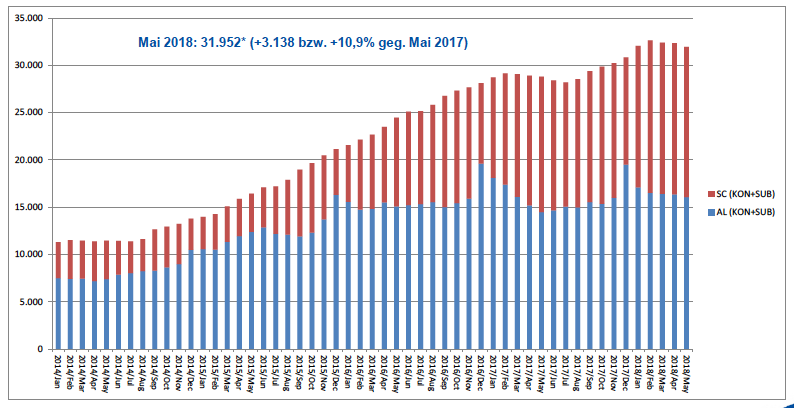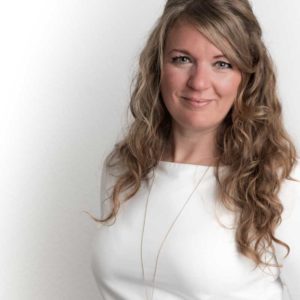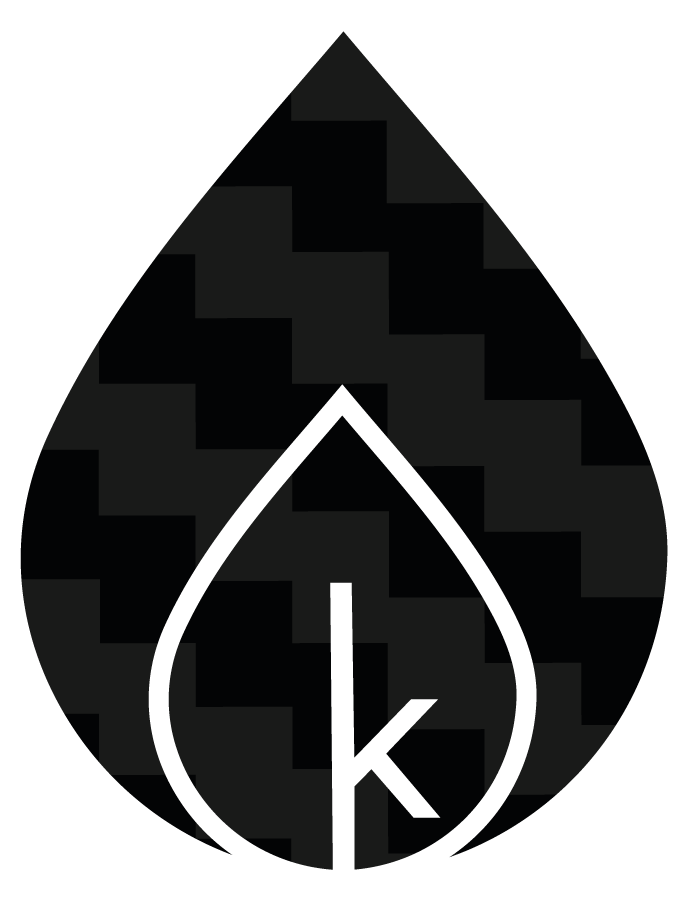Since the great flight movement in 2015, the issue of migration has once again become the focus of politics, the education and labour market and the civilian population. It is a topic that moves and it is above all the life stories that move us. Especially women with a history of migration are among the most vulnerable groups in our society. Language barriers, missing or unrecognised educational qualifications, care responsibilities, cultural differences, experiences of discrimination, as well as traumatic stress due to flight make it difficult to arrive in a foreign country.
It is therefore all the more important that social inclusion is not understood as a one-dimensional construct, but as a multidimensional subject that is reflected in society and has an interdependent effect. An essential component of inclusion is participation in working life. The experience of AMS counselling has shown that participation in the labour market becomes more difficult the longer the absence from working life lasts [1].
At the same time, a review of recent years shows a clear increase in the number of persons registered with the labour market service (AMS) who have the status “entitled to asylum” (recognised refugees) or the status “beneficiaries of subsidiary protection”.
Number of recognised refugees and beneficiaries of subsidiary protection, registered unemployed or in training (May 2018) – Developments since January 2014 – Austria

This was taken as an opportunity to create a nationwide offer for women who are far removed from the labour market, over and above the generally known difficulties for women on the labour market (compatibility of family and work, atypical employment relationships, income gap, social role attributions, poverty in old age, etc.).
The target group of the FrauenRaum includes particularly disadvantaged women with the aim of supporting and strengthening them. Thus, all women are addressed who have particular experience of migration, who are entitled to asylum and subsidiary protection, as well as asylum seekers with a “high probability of being granted asylum”. A reservation with the AMS is not an immediate requirement. In project development, special attention was paid to the low-threshold component in order to increase the accessibility of the target group, and Innsbruck was chosen as the pilot location. In 2019, the Women’s Room was launched for the first time in Tyrol. The offer is free, without prior registration and takes place every 14 days. During the FrauenRaum women with childcare obligations can take advantage of professional childcare. The infrastructure of “Frauen im Brennpunkt” can be used here, which has high-quality childcare in the form of crèches and childminders. The FrauenRaum primarily serves to prepare women for the education and labour market. Through the link to the FrauenBerufsZentrum, participants receive expert information that enables them to acquire knowledge and strengthen their skills. The main topics are education and profession, rights and duties on the labour market, support in dealing with financial responsibility and health. The offer includes the possibility to build up social contacts and a network and to make inclusion instead of exclusion experiences.
The methods, which are mainly applied in the women’s space, result from an attitude that is briefly described below:
The principle of wholeness
This includes the understanding that economic and social as well as psychological and physical aspects influence the current situation of women and must therefore be included in the Women’s Space. Gender-specific living conditions must be taken into account.
Solution and resource activation
The basis for this is a positive image of humanity, which is based on meeting participants with appreciation. It is a matter of strengthening the women in their confidence that they are able to find possibilities for action in order to reach a solution.
Working in the network
Especially when working with people with a history of migration it is essential to involve other organisations. Cooperation creates a common pool of knowledge from which the participants can draw and also makes it easier for them to gain access to other institutions or to overcome their initial inhibitions during initial contact.
The persons concerned are the experts
Making women the active shapers of their situation enables us to respond to the needs of the participants. The counselling expertise is based on the principle of “asking questions” instead of giving answers or advice. The emphasis is on moving from input to impact in order to create learning in the process and in the relationship.
Diversity creates resilience
The project creates space for diversity among women as well as in terms of topics. In this way perspectives are broadened and inclusion is lived. With this basic attitude, participants can develop resilience and thus find a good way of dealing with particularly challenging life situations.

This attitude is decisive in selecting those methods for the women’s space which, at the top line, simply strengthen the participants in all aspects. The variety of possibilities in the counselling and support setting is of course very large and for this reason, the potential transformation, which is particularly effective for women in the Women’s Space, is presented in detail here.
The term potential transformation comes from Gunther Schmidt from the hypnosystemic area and is generally suitable when people have great difficulties in finding possible solutions for a situation they experience as “lost” and when the solution involves a change in behaviour, where a pattern can be transferred to different situations and different contexts. The aim of this technique is to transfer the pattern of a behaviour or skill that the person obviously masters very well to an existing situation – in order to solve it by applying the same pattern. The sequence of potential transformation is as follows: First, the participant describes her problem (actual state). Then, with the support of the consultant, she formulates a goal (target state) and from this the task for the consultant is formed. Now, with the focus on the solution, the path from the actual to the target is begun. Here, the participant is asked for behaviour that she has mastered very well (hobbies or preferred activities in her job, such as what she likes to do). The consultant asks concrete questions until there is a clear picture of this behaviour. In the second step, the questions are formulated in such a way as to find out the “how” of the behaviour. “What do you have to pay particular attention to when you carry out the activity you have mastered here? What is the most important thing?” Afterwards the counsellor repeats the criteria the participant has mentioned, which contribute to the success of the hobby or activity. This is the basis for working on the solution picture. The “skilful” criteria are now transferred to the problem situation. This process can take place by asking the following questions: “What does XXX (criteria) mean transferred to the situation you have just described?”, “What would be the consequences if you applied exactly these criteria you have just described to your current situation?” or “Let’s assume that you would transfer all of the criteria mentioned to your problem situation and make sure that you also take them to heart, what would be the consequences? This allows the participant to take the pattern from the known field of activity and apply it in the problem situation. At the same time, she gets to know the pattern of potential transformation in a very general way and can later apply it to other problem areas [2].
In conclusion, the “Women’s Space” project can be summarised as follows: Success factors for a low-threshold offer include good preparation, the involvement of all relevant persons and organisations (internal staff, target group, network and cooperation partners), teamwork, the freedom to let the offer emerge in the process and openness in its implementation as well as creating suitable framework conditions. Challenges in the project have been shown in reaching the target group, in “competition instead of cooperation thinking” with institutions working with the same target group, in formulating the success criteria of the project (quality versus quantity), finding a common language at different language levels.
Further information about the offer as well as the current dates can be found on the website of Women in Focus www.fib.at.
To the Author

Sonja Karbon has been head of the FrauenBerufsZentrum Nordtirol since 2017 and since autumn last year she has been in charge of the EU projects for women in focus. Her areas of work include the conception of new offers as well as the further development of existing consulting services, project management and implementation, networking and public relations, monitoring and quality management. Academic background: Diploma in Educational Sciences at the University of Innsbruck (2008), Master in International Health and Social Management at Management Center Innsbruck and North South University, Dhaka / Bangladesh (2017), Master in Organizational Development and Consulting at the University of Applied Sciences Schlosshofen (2019), since 2003 in the field of social education and consulting with different target groups. Main focus since two years: Labour market policy with focus on women plus gender – needs, impact and innovative approaches.
This article is based on the workshop of the same name, which was led by Sonja Karbon at the Euroguidance conference in Vienna on 7 November 2019. At the beginning of the workshop, various success factors that can contribute to the success of such a project were presented on the basis of the different conception and development phases. During the workshop, practical tools from the FrauenBerufsZentrum’s methodological case with a focus on competence orientation will be presented and tested.
1] Concept of Open Women, Federal Employment Service, Vienna, 2017.
2] Sonja Radatz: Counselling without advice. Systemic coaching for managers and consultants. A practical handbook with the basics of systemic-constructivist thinking, question techniques and coaching concepts. Literature-vsm. Wolkersdorf. 2015




